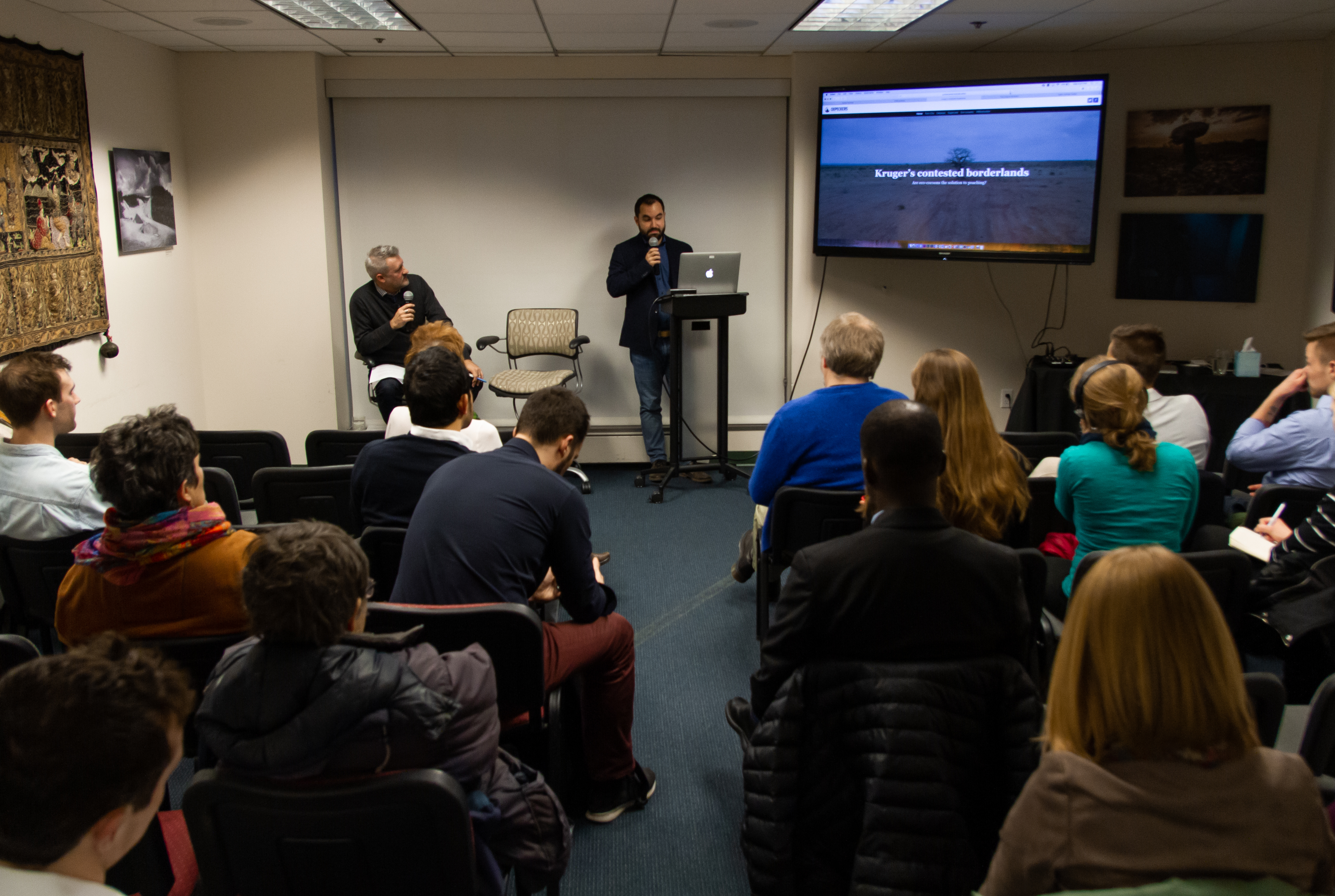
How is data journalism used to augment traditional reporting techniques? Code for Africa (CFA)–an organization specializing in data journalism–teamed up with Oxpeckers to document recent claims that business executives and local politicians along the border between South Africa and Mozambique are exploiting anti-poaching development schemes for profit. Locals claim that these activities are disproportionately impacting their communities.
Their Pulitzer Center-supported project–titled "Kruger's Contested Borderlands"–intertwined high-quality infographics with first-hand accounts to display the consequences of these developments on local communities. CFA Chief Data Officer and Pulitzer Center grantee Jacopo Ottaviani spoke on February 13, 2019, at a Talks @ Pulitzer moderated by the Pulitzer Center's Steve Sapienza about this project as well as the work of CFA more broadly.
CFA's work fits neatly into a recent trend on the continent towards greater technological innovation, and for a series of interrelated economic, social, and political reasons, African populations are rapidly integrating data technology systems into their daily lives. This is perhaps most evident in the adoption of financial technology (including cryptocurrency and mobile transfer platforms), but it is also clear that individuals are finding new ways to engage with data information.
For CFA, its core mission is to make data information accessible to the general public. There have been pushes against national governments in recent years to make available certain data which is considered in the public interest, and while some governments have been reluctant to publicize potentially sensitive information, others have responded positively.
Of course, the problem is that oftentimes when data is released, only a small number of skilled individuals can interpret it, rendering it mostly inaccessible to the general public. The data, then, is "only the ingredient," and "you need data literacy to make it all make sense," Ottaviani reminded his listeners. That is the role CFA seeks to fulfill.
CFA also aims to serve a higher-minded purpose, however. Ottaviani noted that one of his most important challenges is finding ways to "humanize the data." In other words, not only churning out statistics and translating them into readable infographics, but also ensuring that they convey real human experiences. "Behind every data point there might be one human story," and it is therefore crucial not only to provide statistical information, but also the names, faces, and stories that give the data meaning and elicit the desired emotional response.
This was precisely what CFA achieved with its "Kruger's Contested Borderlands" project.







